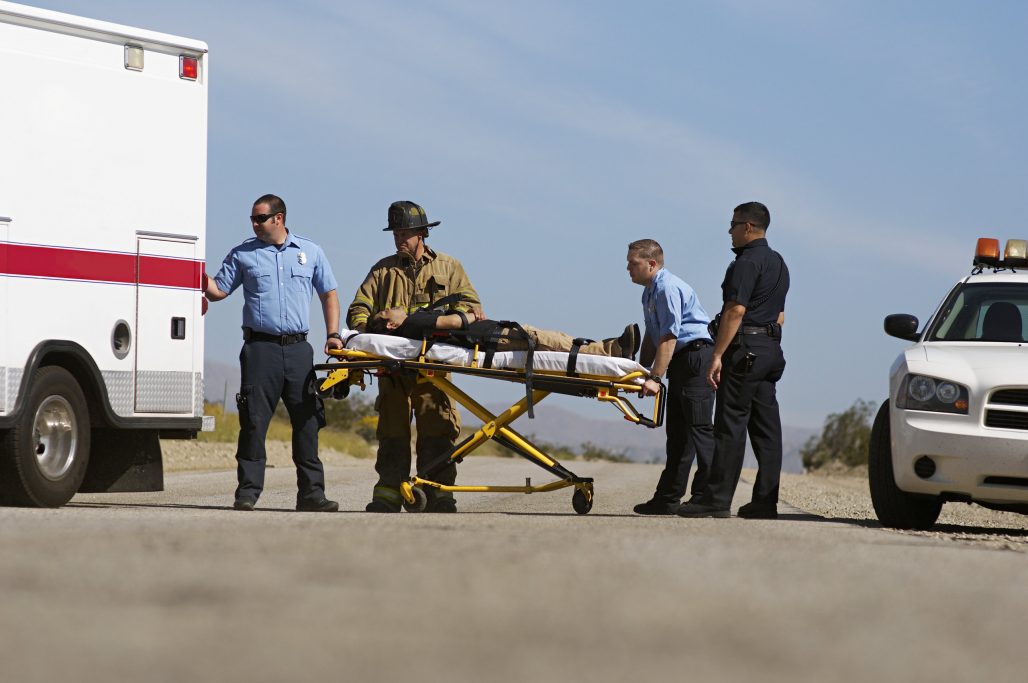Maximizing your injury claim just means getting a fair settlement. The auto liability insurance company is already working on ways to defeat or at least minimize your claim. Remember, insurance companies charge a lot of money for premiums from everybody. But they get to keep all the money that they do not pay out for claims. In order to do this, they will stop at nothing to cheat you out of every penny they can. They spend millions of dollars “training” their claims adjusters in the methods of beating you!
Insurance claims adjusters
That means you have to be smart. People call lawyers every day to say, “I just want a fair settlement. I’m not trying to get rich off of this insurance claim.” If only insurance companies thought that way injury lawyers would be out of business. You can count on many things. The sun will come up in the morning. It will be hot in Texas in the summer. And insurance companies will always try to do the wrong thing.
One of the first things the insurance claims adjuster will try to do is to take a tape-recorded statement from you. They’ll tell you they must have the statement in order to process the claim. That’s just a lie. Most claimants with lawyers never give a statement. The insurance adjuster has a list of “loaded” questions they want to ask to catch you off guard or to make you just say something that hurts your case later on. For example, they often will ask you immediately after a car wreck to provide a complete description of your injuries; or they will ask you to provide precise details about the wreck. As you’ll see below, those questions may seem reasonable but they are really just a trap.
Insurance companies know that many times the symptoms of traumatic injuries do not appear for several days. But they will use your own words to deny compensation for any injury you failed to describe completely at that time. For example, hip and leg pain may be the result of a low back injury. Sometimes the low back is immediately painful but the hip or leg does not begin to hurt for days or even weeks. So when the claims adjuster asks for a list of injuries, the person with an injured back may have no idea their leg and/or hip will be in severe pain the next day.
With regard to giving a statement about the details of the wreck, most people are completely unprepared. For one thing, wrecks are often confusing. The insurance adjuster aims to take advantage of that fact. They will ask questions about time, speed and distance–such as, how far away from the intersection were you when your light turned green? How much time passed between the moment your light turned green and the actual crash? The truth is, you weren’t using a stopwatch. The amount of time that passes in these instances is usually less than two or three seconds. But most people will say “10 seconds” or “30 seconds” or “a minute or two.” The insurance adjuster will use the answers to those questions to say you were speeding, or that you were at fault. The end result–“claim denied.”
The best way to maximize your injury claim is to start smart. Never give a recorded statement to the insurance company until you have consulted an experienced injury lawyer. Remember, a lawyer cannot undo the harm you cause to your own case. Get legal advice first, and then decide whether you should allow the insurance company to question you about the wreck.
Medical Records & Injury Claims
The backbone of injury claims is medical records. That is what injury lawyers and the insurance companies use as the main factor in determining a value for the case. There is nothing more important than having injuries well-documented in the medical records. The injury victim should obtain medical care as soon as possible after the injury occurs. There should be follow up care within a few days thereafter and continuing regularly until the injuries are fully resolved.
Medical treatment starts at the scene of the wreck. The police officer will ask if you are injured. There is a section of the Texas crash report where the investigating officer will note whether you were injured. If there is an injury, the officer will call an ambulance (if the ambulance was not already dispatched via a 9-1-1 call). If the Emergency Medical Technicians treat you at the scene, there will usually be a report created whether you are transported in an ambulance or not.
Many car wreck injury victims are seen at an emergency room within 48 hours of the wreck. Again, there will be medical records created to document the injuries. The medical records continue if the patient is admitted to the hospital. When a patient is discharged from the emergency department or the hospital, the discharge papers usually contain instructions to follow up with the patient’s regular doctor or another doctor recommended by the hospital.
It is very important to follow up as recommended. Unfortunately, many injury victims do not have health insurance and they fail to follow up with their medical care because they cannot afford it. There is no excuse for failing to obtain medical treatment in this situation. If the patient does not have health insurance and the patient does not qualify for Medicaid, Medicare or indigent benefits, then an injury lawyer can help the patient get the necessary care without having to pay out of pocket.
Delays and gaps in treatment are one of the leading causes of problems in resolving injury claims. Failure to properly follow up on medical care greatly decreases the value of the claim. The insurance company will not simply accept as true the injured person’s statement that he or she is still injured. The insurance company will assume the injuries either completely resolved or that the injuries are very minor. Therefore, timely and proper medical care is essential to maximize the injury claim.
Lost wages after an Injury
Lost wages after an injury can be a significant part of the claim. But lost wages can be difficult to calculate for some jobs (e.g. jobs that pay commission or tips) and sometimes injury victims fail to properly establish the foundation for lost wage claims.
Texas law does not specifically provide for recovery of “lost wages” as damages that can be recovered in an injury claim. Technically, the proper term is “loss of earning capacity.” Texas courts have long recognized that “lost earnings” is generally reliable evidence as to a person’s loss of earning capacity. Therefore, to keep things simple, we’ll treat the two terms as meaning the same thing although there can be a significant difference.
The “trigger” for eligibility to recover lost wages is a medical restriction from work. An injured person who does not go to work because he is in pain will have a very hard time recovering lost wages if a doctor did not formally restrict the patient from work. That will include a specific note in the medical records and usually, the doctor will write out a work restriction form. The patient should be very diligent in making sure the doctor formally continues the work restriction until the patient is actually able tore turn to work. Such a formality is not necessary in catastrophic injury cases.
Sometimes employers do not require a formal work restriction. The patient should still obtain the restriction for the sake of making the insurance claim. Some injury victims work solely on a commission basis or are self-employed. The work restriction is still necessary for the lost wage claim. It is important to note that the injured person is entitled to seek lost wages for all time missed from work as a result of the injury–even if the employee was used “sick” or “vacation” days to get paid for the time off (the employee lost those days and is entitled to be reimbursed).
The injury victim should start by obtaining a work restriction from the doctor and continuing to get additional work restrictions until able to return to work. Upon returning to work when the restriction expires, a log or spreadsheet should be kept of all additional days and hours missed–for doctor appointments, physical therapy, or just because the pain was too severe to go to work some days. Properly documenting lost wage claims will help maximize the auto injury claim.
Value of your Injury Claim
In order to get maximum value in an injury claim, a person needs to know the value of the claim. But how are injury claims evaluated? Properly evaluating a claim is more art than science. There is no Blue Book to consult for injury claims like might be done in appraising a vehicle. Experience goes a long way in determining fair settlement value. The best that can truly be done is to determine an acceptable range of values between the high end and the low end. A settlement in that range would reflect the “fair value” of the claim.
Much depends on who is doing the evaluating. Every aspect of the case will affect its value–either positively or negatively. The insurance claims adjuster will focus on the negative aspects of the claim, such as any gaps in medical care, poorly documented injuries, etc. The injury victim and his lawyer will focus on the positive aspects of the claim, such as damage to the vehicles, medical diagnoses of injuries, treatment records, etc.
In order to persuade the insurance claims adjuster to properly evaluate the claim and to pay maximum value, the claim file must be well-documented. That means the accident report, witness statements, medical records, medical bills, photos of vehicles, photos of injuries, documentation of lost wages, medical articles explaining the injuries, and diagnostic films (x-rays, MRIs and CT scans). It may also require reports from experts such as the treating medical doctor explaining the injuries in more detail and/or an accident reconstruction engineer explaining what happened in the wreck.
Another vital aspect of evaluating injury claims is to know what other similar cases have settled for, as well as knowing about jury trial verdicts in similar cases in the county where the wreck occurred. Personal injury lawyers should keep informed of that information in order to confirm their own evaluation of a case. Of course, every case is different and must be evaluated on its own evidence. But comparisons to other cases can be very helpful because that information is heavily relied upon by insurance claims adjusters. Proper knowledge and preparation are essential to obtaining a fair settlement from an insurance company.
HOW TO FILE AN INSURANCE COMPLAINT
Insurance companies must be held accountable for all the evil and harm they cause. People who have a bad experience with an insurance company generally either hire a lawyer or just walk away with a bad deal. The problem is, if the insurance company’s bad acts are not reported, they just keep doing it.
The Texas Department of Insurance is definitely not consumer-friendly. For the most part, it is dominated by insurance company insiders who pal around with the insurance industry. The TDI typically gives its approval to whatever the insurance industry wants to do. However, the TDI is still a governmental entity. And they have to follow certain rules.
One of the rules is they have to accept and record complaints that are filed against insurance companies and claims adjusters. A consumer can file a complaint online here. Those complaints are presumably investigated, but at the very least the complaint is reported in the annual “report card” that TDI gives to insurance companies when it publishes the list of insurance companies and shows the number of complaints filed each year.
So don’t be a sucker. File a complaint when the insurance company does not treat you fairly. And then immediately hire an injury lawyer.

